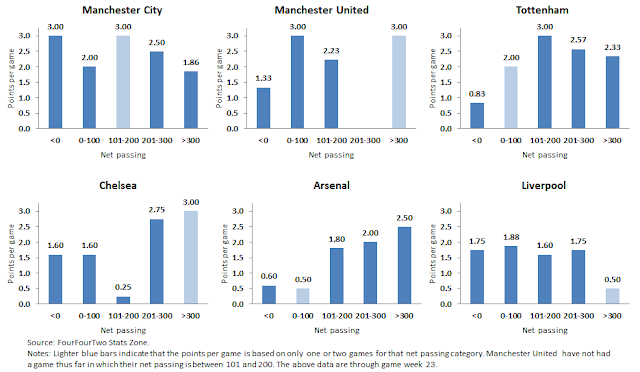(Click on figures to enlarge)
The light blue bars in the figures above indicate that the points per game statistic is based on only one or two games. As a result of such a small sample, these statistics are not very reliable. Manchester City have a high points per game irrespective of their net passing. Somewhat surprisingly, they have not dropped any points in games in which their opponents have out-passed them, and they have collected the fewest points per game from games in which they completed at least 301 more passes than opposing teams. Manchester United have collected on average only 1.33 points per game from those in which they were out-passed, while they have been markedly more effective in games in which they have a positive value for net passing. Remarkably, they have out-passed opponents by a margin greater than 200 passes on only two occasions. Tottenham also have a much higher points per game when they out-pass opponents, and the pattern appears more pronounced than that of Manchester United. Chelsea have averaged a respectable 1.6 points per game in games in which they were out-passed or completed 100 or fewer passes more than opposing teams. The incredibly low 0.25 points per game for the net passing category of 101-200 serves as an important reminder that statistics can yield strange results, especially when estimated from small sample sizes. Net passing seems to be quite predictive of Arsenal's performance, which is perhaps not surprising given Arsenal's style of play. Finally, there is little variation in points per game across net passing levels for Liverpool (ignoring the >300 category, which is based on only two games).


No comments:
Post a Comment
Please participate in the discussion.